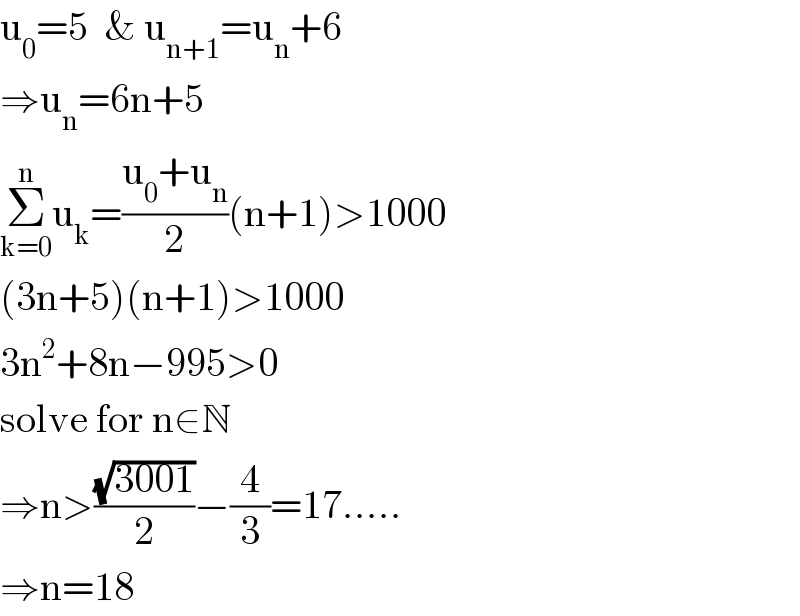
Question and Answers Forum
Question Number 115095 by aurpeyz last updated on 23/Sep/20

Answered by Dwaipayan Shikari last updated on 23/Sep/20

Commented by aurpeyz last updated on 23/Sep/20

Commented by Dwaipayan Shikari last updated on 23/Sep/20

Answered by Aziztisffola last updated on 23/Sep/20

